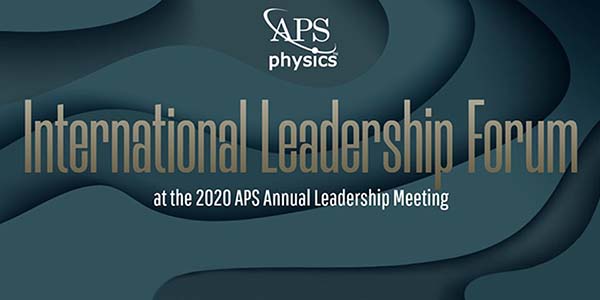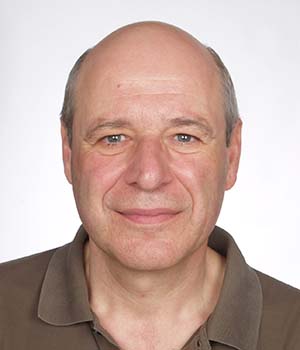Washington Statement on International Engagement in Physics
Fabio Zwirner
Initiated by David Gross, President of the American Physical Society (APS) for 2019, an "International Leadership Forum" took place in Washington DC on January 30-31, 2020. Participants included the leadership of APS and leaders from the global physics community, among them representatives from national physical societies and international research facilities, science policy experts and other eminent physicists. Fabio Zwirner attended from Italy, invited as Chairman of the Steering Committee of the International Centre for Theoretical Physics (ICTP) in Trieste.

The program included two panel discussions, a closed-session round table, and keynote talks by Steven Chu (Nobel Laureate and former US Secretary of Energy), David Reitze (Executive Director of the LIGO Laboratory) and Christopher Monroe (a leader in quantum information science). The first panel discussion, on International Collaboration, focused on the growing need for global facilities, such as the gravity-wave network, the Event Horizon telescope and the LHC at CERN, and on the need for international physics teams to advance progress using these instruments. The second panel, on International Competition, discussed how new science areas such as quantum information benefit from free exchange of people and knowledge across international borders, even in a world where security concerns and economic competition may be creating barriers to that exchange. It was stressed that collaboration on issues such as climate change, nuclear safety or health can only benefit all the parties involved. The round table discussed how we should respond to growing restrictions on international contact, especially in the US with respect to China, which could threaten future global engagement in physics. Observers from US federal science agencies and US government leaders in science policy were also invited.
In their concluding Statement, the participants in the round-table discussion affirmed the following principles:
-
The openness of fundamental research is critical to advance science, and ultimately improve the lives of everyone on the planet.
-
Freedom to travel for research or for international conferences is essential to realize the full potential of investments in fundamental research.
-
Global competition and collaboration in fundamental science drive innovation, and should not be limited by restrictions on participation, publication, communication, or travel.
-
Scientists who are studying or working outside their country of origin should be welcomed; they add great value through their presence and scientific contributions.
-
International cooperation in education, training, and research is critical to building scientific capacity across the world.
-
As scientists, we reaffirm our obligations to transparency. Concerns about conflicts of commitment, research integrity, and research implications for economic security must be discussed openly in the scientific community.
Learn more about International Engagement in Physics
https://leadership2020.aps.org/forum/
https://www.youtube.com/playlist?list=PLgxD9DiwxLGots29zA84eezUgzucPtlXe
Fabio Zwirner is Professor in the Department of Physics and Astronomy of Padua University, and Research Associate in the Padua Section of INFN. After getting his Ph.D. degree at SISSA, he carried out his research activities in theoretical physics of the fundamental interactions at Berkeley, CERN, INFN and the Universities of Rome Sapienza and Padua. He chaired the CERN Scientific Policy Committee from 2011 to 2013 and was member of the INFN Executive Board from 2015 to 2019. He is currently chairing the Steering Committee of ICTP, Trieste and serving in the European Research Council as Vice President for Physical Sciences and Engineering.

Fabio Zwirner
Disclaimer - The articles and opinion pieces found in this issue of the APS Forum on International Physics Newsletter are not peer refereed and represent solely the views of the authors and not necessarily the views of the APS.
